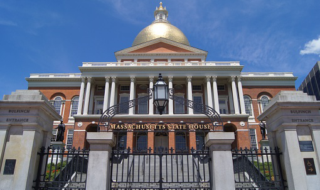Topics:
December 16, 2022 Last Edit: June 5, 2025
NFIB Sends Message to Lawmakers in Boston Herald
State:
Get to know NFIB
NFIB is a member-driven organization advocating on behalf of small and independent businesses nationwide.
Related Articles

June 30, 2025
NFIB Slams MA Legislature for Slipping New “Secure Choice…
“Again, lawmakers’ policy choices and pro-small-business rhetoric are in…
Read More


June 30, 2025
Get Tips on Website ADA Compliance on the Small Business Rundow…
The Small Business Rundown talks website ADA compliance, the Small Business…
Read More


June 30, 2025
Reminder: Important Tax Changes Went into Effect on July 1
Income, sales & use, and the new “tech tax” are impacted
Read More


June 30, 2025
Florida’s Small Business Community Celebrates Tax Package Bec…
Governor DeSantis signed legislation eliminating the business rent tax
Read More







